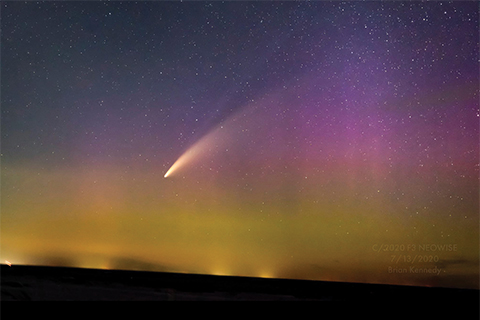Planetarium offers virtual field trips

The Delta College Planetarium is temporarily closed due to the coronavirus crisis, but that isn’t stopping staff from teaching students about space.
This summer, staff members hosted several virtual field trips for children in first, second and third grades in Bay City. The students learned about the moon, including its phases and surface features.
“It’s rewarding both professionally and personally that we can offer virtual services to schools in times like these,” said Mike Murray, astronomer and manager of the Planetarium. “These services will become a valuable addition to our outreach program, allowing us to engage many more Michigan students.”
Murray and Brian Kennedy, show specialist, taught the lesson from their homes. With the help of a green screen, they incorporated visual demonstrations and interactive elements.
“We designed the lesson to tie in with state and national science standards to be sure it would be relevant to what the teachers need,” said Murray.
Nicole Green, a second-grade teacher at Auburn Elementary, said her students enjoyed learning about the moon, even if it was through Zoom.
“It was more than just watching a screen,” Green said. “My curious kiddos loved the time lapse videos and being able to have their questions answered.”
The program is part of the Summer Literacy/STEAM Project, a series funded by a grant given to Bay City Public Schools to bring virtual field trips to students through partnerships with area organizations.
Murray said he is preparing to offer additional lessons this fall on subjects including the seasons, solar system and stars. He plans to also offer the lessons to students in area counties, including Saginaw, Midland and Arenac.
Staff member captures out-of-this-world photo of rare comet
In July, Comet NEOWISE made its nearest approach to Earth. Brian Kennedy, show specialist
for the Planetarium, captured several photos of the object in the night sky.
Known as one of the brightest comets in a generation, the object was about 100 million kilometers away at its closest point. The comet is named after the spacecraft that discovered it in late March and it caught the eye of stargazers around the world.
Interested in supporting the Planetarium? Contact us at 989-686-9224 or foundation@delta.edu.
